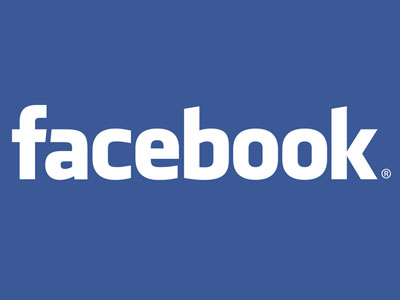 A monopoly is either what the government says it is or what a dominant company’s competitors claim. The government’s opinion is the only one that counts, however, as Sprint will find out as it protests the new AT&T buyout of T-Mobile.
A monopoly is either what the government says it is or what a dominant company’s competitors claim. The government’s opinion is the only one that counts, however, as Sprint will find out as it protests the new AT&T buyout of T-Mobile.
The seminal legislation that determines monopolistic behavior is the 1890 Sherman Antitrust Act. Theodore Roosevelt’s administration used it to effectively break up Standard Oil. In the 20th Century, the Justice Department’s battle against AT&T lasted from 1974 to 1982 and ended when Ma Bell agreed to spin off all its local operating companies.
The government has brought several actions against large American tech companies. IBM fought the Justice Department for more than a decade in the 1980s over charges that it had a hardware monopoly. The Justice Department brought a case against Microsoft in 1998 which claimed that the world’s largest software company used its leverage in the PC business to block other firms from entering the computer operating system market The government was able to get very modest restrictions on Microsoft’s behavior. Microsoft also spent years fighting similar accusations in Europe.
A common definition of a monopoly is when a company has such effective control of its market that it can set prices and stifle innovation by depriving competition of any chance of profit. The offending company only has to continue to do extraordinarily well in its field regardless of what antitrust regulators have to say. 24/7 Wall St. found ten instances that could be considered de facto monopolies though the government will not take action in each case.
People may be surprised to learn that all of the monopolies on the list are technology companies. That has been the case for over more than 30 years. Industries which are large but only recently established are often controlled by just one company. That was true at the dawn of the oil industry at the end of the 19th Century. It was equally true when the PC was introduced widely in 1980. Microsoft offered the only PC operating system that had enough market share to make it viable so that computers could have a common language. That dominance fed on itself as the number of PC manufacturers and users rose.
Each of the companies on this list certainly has a huge lead in market share. Each has also been deft at keeping competition out of the market by financial strength, innovation, or use of the outright leverage it has because of its advantage in related markets.
Read on for the New Generation of American Monopolies
Google
 >Product: Search Engine
>Product: Search Engine
>Market Share: 90.1%
>Competition: Yahoo!, Bing
In mid 1990’s, there was relative parity in the search engine market. Companies such as Excite, Lycos, and Altavista and Ask Jeeves each had its own piece of the market. This all changed when Yahoo, MSN and Google came on the scene in the late 1990’s. The former search leaders were bought out or went bankrupt one after another. By 2006, the the search engine market was split among the three companies. Six years ago, Google’s market share was 36.4%, compared to Yahoo!’s 30.6% and MSN’s 16.5%. It was Google’s search results, perceived by many to be superior, and its powerful branding which helped the company take control of the search engine business. As of this month, Google’s share has risen to 90.1%. Its closest competitors, Yahoo! and Bing, each have roughly a 4.2% share, according to Statcounter.com.
Microsoft
 >Product: Windows Operating System
>Product: Windows Operating System
>Market Share: 89.7%
>Competition: Mac OS X, Linux
Microsoft is no stranger accusations of market domination. In 2000, the company’s massive market share, due the ubiquity of its operating system, led the US Department of Justice to accuse it of abusing its monopoly power. Today, Microsoft’s Windows operating systems still controls the majority of the market. According to analytics firm Net Applications, Microsoft had just under 90% market share as of February 2011. As recently as February 2008, the company controlled more than 95% of the market. Still, it is difficult to argue that Microsoft’s power is experiencing a significant decline when the second most popular operating system, Mac OS X, represents just over 5% of the market.
Facebook
 >Product: Social Media Site
>Product: Social Media Site
>Market Share: 63.8%
>Competition: MySpace, Linked In, Twitter
It is hard to believe that MySpace once controlled social media. In July 2006, according to Nielsen, Facebook had approximately 8 million active users, while MySpace had 100 million and was growing. This all changed as Facebook opened first to high school students, and finally to all Internet users. Now, according to Experian, MySpace is not even the No. 2 site among social networks, with only 1.6% of social media visits per week, compared to YouTube’s 19.8% and Facebook’s 63.8%. In 2009, according to the Financial Times, the social media giant was sued by a startup competitor, Power.com, for “restricting users” and “stifling competition.” Facebook won the suit.
Netflix
 >Product: Digital Video Streaming
>Product: Digital Video Streaming
>Market Share: 61%
>Competition: Blockbuster, Hulu, Vudu
Netflix’s style of DVD rental-by-mail revolutionized the video rental business and is largely responsible for competitor Blockbuster’s bankruptcy. The company continues to lead the rental market, holding much greater market share than competitors Redbox and Blockbuster. Today, Netflix is again changing the video industry through online streaming. According to research company NPD Group, Netflix has 61% of the digital video market. The next greatest market share belongs to Comcast Corp, with only 8%. Since last November, when Netflix introduced its streaming-only plan, more than 2.5 million people, over one third of Netflix subscribers, have signed up. Netflix has announced plans to further the reach of its streaming service through partnerships with companies such as Facebook, adding to the likelihood that its market share will expand even further.
Intel
 >Product: Microchips
>Product: Microchips
>Market Share: 80.3%
>Competition: AMD
Intel is by far the world’s biggest chip manufacturer. Lately, the company has been accused of being an illegal monopoly. In the past two years, Intel has settled lawsuits brought by rival chip maker AMD and the Federal Trade Commission for several billion dollars. These suits, however, haven’t had an impact on the company’s dominance of the microchip industry. As of the fourth quarter of 2010, AMD’s share of the chip manufacturing market was 12.1%, compared to Intel’s 80.3%.
Apple iPad
 >Product: Tablet Computers
>Product: Tablet Computers
>Market Share: 73%
>Competition: Android, Samsung
Apple was once an also-ran in the personal computer industry, which was dominated by Microsoft’s operating system. Apple has effectively turned the tables in the portable device business because of the success of the iPhone, iPad, and the OS that powers them. Apple dominates two critical sectors, tablet computers, with the aforementioned iPad, and music downloads with the iTunes store. Apple’s introduction of the iPad in 2010 was viewed by some as an arrogant attempt to sell the unsellable, something that was neither a smartphone nor a laptop. Instead, sales exceeded even the most optimistic expectations, and the iPad has since been a major new source of revenue for the company. Thus far, competitors like BlackBerry and Samsung can’t seem to make a product capable of getting a foothold in the market. According to Forbes, as of fourth quarter 2010, Apple controlled 73% of the tablet market, with Samsung commanding 17%.
Apple iTunes Store
 >Product: Digital Music Store
>Product: Digital Music Store
>Market Share: 70%
>Competition: Amazon.com, Wal-Mart Music Downloads
Introduced in 2001, Apple’s iTunes music store is the reason most people no longer buy music in stores. The ease and selection of purchasing digital music exploded soon after the store was created, and nothing has been able to compete with iTunes’ sales. According to Reuters, the store’s closest competitor, Amazon, accounts for less than 10% of digital music sales, with iTunes commanding roughly 70%. Reuters has reported that the Justice Department is conducting an antitrust investigation of iTunes.
Also Read: Facebook’s Valuation Warning: When Yahoo! Was Worth More Than Intel, Verizon, and Pepsi
Kindle
 >Product: E-Reader
>Product: E-Reader
>Market Share: 67%
>Competition: Barnes & Noble, Sony
According to a report by Goldman Sachs Group Inc. published in February, Kindle’s market share of e-readers is 67%. The second most popular e-reader is the Nook, which has 22% of the market. The success of e-readers has revolutionized the publishing business. Ebooks outsold paperback books for the first time in January of this year. This trend has caused Barnes and Noble to refocus its business, and pushed Borders Group into bankruptcy. According to The American Association of Publishers, e-book sales rose to $441 million in 2010, up from $169 million the year before. The market shows no signs of slowing down, and the popularity of Amazon’s Kindle shows no signs of waning.
Sirius/XM
 >Product: Satellite Radio
>Product: Satellite Radio
>Market Share: 100%
>Competition: None
Sirius XM Radio is the holding company of Sirius Satellite Radio and XM Satellite Radio, the country’s two largest satellite radio providers. At one time the companies were fierce competitors, and both were losing money. In July of 2008, the only two satellite radio companies in the country merged. The merger was deemed legal after more than a year of deliberation by the Justice Department. Today, the company is the only satellite radio provider in the United States.
PayPal
 >Product: E-Commerce Payments
>Product: E-Commerce Payments
>Market Share: N/A
>Competition: Google Checkout, Fiserv, CashEdge
PayPal is the undisputed leader in online payments. The company, which is owned by eBay, currently manages more than 232 million accounts worldwide. In 2007, two antitrust lawsuits were filed against eBay with regards to its relationship with PayPal, however both were thrown out. Recently, Apple and Google have announced new payment services, though it is unlikely that they will take significant market share from PayPal.
-Douglas A. McIntyre, Michael B. Sauter, Charles B. Stockdale
In 20 Years, I Haven’t Seen A Cash Back Card This Good
After two decades of reviewing financial products I haven’t seen anything like this. Credit card companies are at war, handing out free rewards and benefits to win the best customers.
A good cash back card can be worth thousands of dollars a year in free money, not to mention other perks like travel, insurance, and access to fancy lounges.
Our top pick today pays up to 5% cash back, a $200 bonus on top, and $0 annual fee. Click here to apply before they stop offering rewards this generous.
Flywheel Publishing has partnered with CardRatings for our coverage of credit card products. Flywheel Publishing and CardRatings may receive a commission from card issuers.
Thank you for reading! Have some feedback for us?
Contact the 24/7 Wall St. editorial team.





